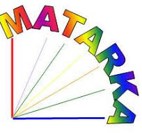Relationship between black poplar and white poplar riparian forests in the Szigetköz, Hungary
Abstract
The syntaxonomical relationship of riparian forests found along the Danube River have been subjected to much debate among phytosociologists. To shed further light on this issue, I conducted a comparative analysis of 65 relevés recorded in white and black poplar riparian forest (Carduo crispi-Populetum nigrae, Senecioni sarracenici-Populetum albae) stands along the Danube in the Szigetköz, NW Hungary. Te two communities exhibit apparent differences in physiognomy and the relative proportion of character species, and are grouped separately with multivariate methods. In this analysis, I was able to identify a group of relevés with clearly intermediate characteristics. Te existence of intermediate stands supports the notion that the two communities represent successive stages of a successional series, which forms the basis of the latest syntaxonomy of these communities.
References
Borhidi A. 1993: A magyar flóra szociális magatartás típusai, természetességi és relatív ökológiai értékszámai. Janus Pannonius Tudományegyetem, Pécs, 95 pp.
Borhidi A. 1995: Social behaviour types, the naturalness and relative ecological indicator values of the higher plants in the hungarian flora. Acta Botanica Academiae Scientiarum Hungaricae 39: 97–181.
Borhidi A., Kevey B. 1996: An annotated checklist of the Hungarian plant communities II. In: Borhidi A. (ed.) Critical revision of the Hungarian plant communities. Janus Pannonius University, Pécs, pp. 95–138.
Borhidi A., Kevey B., Lendvai G. 2012: Plant communities of Hungary. Akadémiai Kiadó, Budapest, 544 pp.
Braun-Blanquet J. 1964: Pflanzensoziologie (ed. 3.). Springer Verlag, Wien–New York, 865 pp.
Horváth F., Dobolyi Z. K., Morschhauser T., Lőkös L., Karas L., Szerdahelyi T. 1995: Flóra adatbázis 1.2. Vácrátót, 267 pp.
Jakucs P. 1967: Gedanken zur höheren Systematik der europäischen Laubwälder. Contribuţii Botanici Cluj 1967: 159–166.
Kevey B. 1993: A Szigetköz ligeterdeinek összehasonlító-cönológiai vizsgálata. Kandidátusi értekezés (kézirat). Janus Pannonius Tudományegyetem Növénytani Tanszék, Pécs, 108 pp. + 32 fig. + 70 tab.
Kevey B. 1998: A Szigetköz erdeinek szukcessziós viszonyai. Kitaibelia 3: 47–63.
Kevey B. 2008: Magyarország erdőtársulásai. Tilia 14: 1–488. + CD-adatbázis (230 táblázat + 244 ábra).
Kevey B. 2016: Puha- és keményfás ligeterdők kapcsolata a Szigetközben. Botanikai Közlemények 103(1): 45–115. http://dx.doi.org/10.17716/BotKozlem.2016.103.1.45
Kevey B., Hirmann A. 2002: „NS” számítógépes cönológiai programcsomag. In: Aktuális flóra- és vegetációkutatások a Kárpát-medencében V. Pécs, 2002. március 8–10. (Összefoglalók), pp.: 74.
Király G. (szerk.) 2009: Új magyar füvészkönyv. Magyarország hajtásos növényei. Határozókulcsok. Aggteleki Nemzeti Park Igazgatóság, Jósvafő, 616 pp.
Moor M. 1958: Die Pflanzengesellschaften schweizerischer Flußauen. Mitteilungen der Schweizerischen Anstalt für das Forstliche Versuchswesen 34: 221–360.
Mucina L., Grabherr G., Wallnöfer S. 1993: Die Pflanzengesellschaften Österreichs III. Wälder und Gebüsche. Gustav Fischer, Jena – Stuttgart – New York, 353 pp.
Müller Th., Görs S. 1958: Zur Kenntnis einiger Auenwaldgesellschaften im württembergischen Oberland. Beiträge zur naturkundlichen Forschung in Südwestdeutschland 17: 88–165.
Oberdorfer E. 1992: Süddeutsche Pflanzengesellschaften IV. A. Textband. Gustav Fischer Verlag, Jena – Stuttgart – New York, 282 pp.
Podani J. 2001: SYN-TAX 2000 Computer Programs for Data Analysis in Ecology and Systematics. Scientia, Budapest, 53 pp.
Soó R. 1930: A modern növényföldrajz problémái, irányai és irodalma. A növényszociológia Magyarországon. Magyar Biológiai Kutatóintézet Munkái 3: 1–51.
Soó R. 1964, 1966, 1968, 1970, 1973, 1980: A magyar flóra és vegetáció rendszertani-növényföldrajzi kézikönyve I–VI. Akadémiai kiadó, Budapest.


















